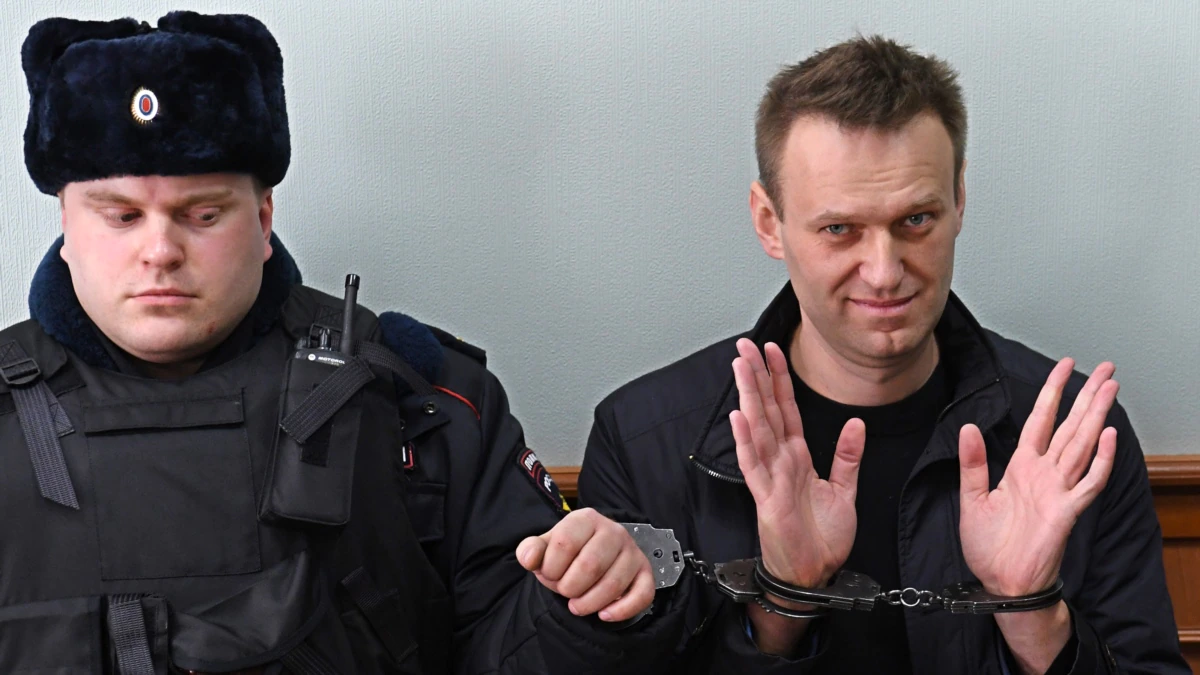
A military court in Moscow has rejected a lawsuit filed by jailed Russian opposition politician Aleksei Navalny against the Main Military Investigative Directorate (GVSU) over its refusal to launch an investigation into his poisoning in Siberia with a nerve agent last August.
Judge Andrei Tolkachenko of the 235th Garrison Military Court, ruled on March 22 that “the GVSU’s decision” not to launch a probe into Navalny’s poisoning was “legal and well-grounded,” and that Navalny’s lawsuit was “not worth considering.”
Navalny’s attorney Vyacheslav Gimadi, who is representing him at the hearing, said the ruling will be appealed.
Earlier at the hearing, Judge Tolkachenko revealed that Siberian Transport Police had refused to launch a probe into Navalny’s poisoning due to the “absence of a criminal act,” adding that the decision not to start an investigation was made on February 10.
Gimadi stated that neither Navalny nor his lawyers had been informed of that decision.
Navalny’s complaint stems from August last year when he fell violently ill on a plane while traveling in Siberia. The aircraft made an emergency landing and Navalny was rushed to hospital where doctors worked to keep the Kremlin critic alive.
After several days in hospital and officials saying they had not found any evidence of poisoning, Navalny, in a critical condition, was flown from Siberia to Germany where he was diagnosed with ingesting what was confirmed by several European labs as a Novichok-type chemical nerve agent.
Navalny’s lawyers filed a lawsuit against several officers of the Federal Security Service who were implicated by the Bellingcat investigative group in Navalny’s poisoning.
However, the GVSU refused to launch a probe into the attack and Navalny’s lawyers filed another lawsuit, this time against the investigative directorate’s inactivity in the case.
The anti-corruption campaigner has accused President Vladimir Putin of ordering the poison attack, but Russian authorities have denied any involvement.
After receiving treatment in Germany, Navalny returned on January 17 to Moscow, where he was immediately arrested.
On February 2, a court in Moscow ruled that, while in Germany, Navalny had violated the terms of parole from an older embezzlement case that is widely considered politically motivated.
His suspended 3 1/2 year sentence was converted into jail time, though the court reduced that amount to just over 2 1/2 years for time already served in detention.
The court hearing began on March 16, but the judge immediately postponed it until March 22 after Navalny refused to take part in the hearing via a video link from a correctional facility in the Vladimir region where he is being held.
Navalny’s detention set off a wave of national protests and a crackdown against his supporters.
The European Union and the United State have imposed a series of sanctions against Russia over Navalny’s poisoning and subsequent detention.